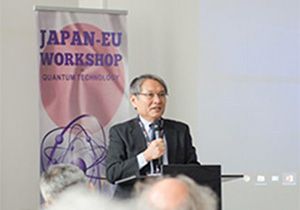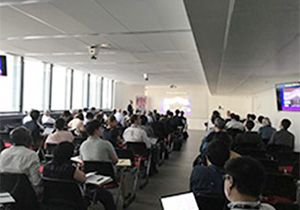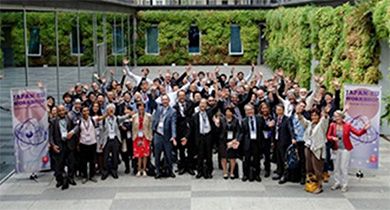International Activities
Today, there are various issues in the fields of climate change, energy, food, etc. associated with global warming. These can not be dealt with in one country, and cooperation with the international community is essential. JST not only solves global issues, but also contributes to the further development of Japan's science and technology and innovation capabilities, such as information and communication, and the strengthening of science and technology diplomacy.
International Collaboration
ASPIREAdopting Sustainable Partnerships for Innovative Research Ecosystem
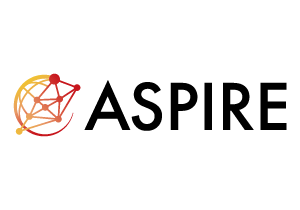
This program is an initiative to develop and strengthen Japan's scientific and technological capabilities through supporting international joint research in scientific and technological fields of strategic priority, while simultaneously promoting researcher mobility in the Japanese research community by connecting top researchers from Japan and other leading countries and regions in scientific research.
SATREPSScience and Technology Research Partnership for Sustainable Development

SATREPS is an international research program conducted in collaboration with JICA, which provides official development assistance (ODA).
Based on the needs of developing countries, this program aims to address global issues and to produce research outcomes of practical benefit to both local and global societies.
SICORPStrategic International Collaborative Research Program
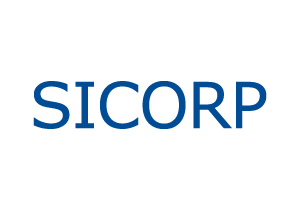
We support international research collaboration on an equal-partnership basis, with partner countries and regions and in research fields designated through interministerial agreement.
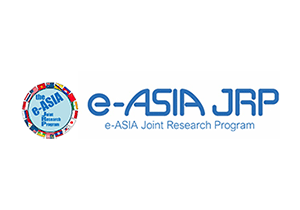
e-ASIA JRP
The e-ASIA Joint Research Program (e-ASIA JRP) is an international joint initiative between public funding organizations of the East Asia Summit member countries. With a central focus on Southeast Asia, the e-ASIA JRP co-funding mechanism aims to strengthen regional research and development capabilities and resolve common challenges in the region.
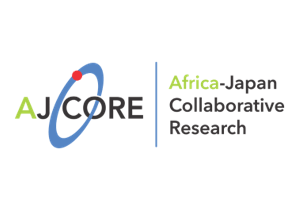
AJ-CORE
AJ-CORE (Africa-Japan Collaborative Research) is a multilateral research framework connecting three (or more) countries: Japan, South Africa, and at least one African country.
Researchers from other African countries will cooperate on an equal-partnership basis with those from Japan and South Africa, together contributing to issues of local and global significance.
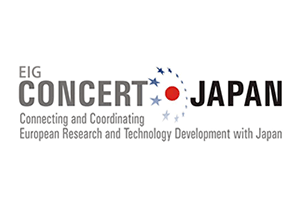
EIG CONCERT-Japan
CONCERT-Japan began as a platform for international research cooperation activities under the EU's Seventh Framework Programme for Research and Technological Development (FP7). After the conclusion of the FP7 iteration in December 2014, its activities continued under the new European Interest Group (EIG) CONCERT-Japan name with 13 science, technology and innovation (STI) funding agencies from 11 European countries and Japan (as of 2019) partnering to further research collaboration and exchange. Through STI policy knowledge sharing, research exchange, network building and joint funding calls, the program supports Japanese-European research collaboration in a variety of fields.

Belmont Forum
The Belmont Forum gathers the world's major and emerging funders of global environmental change research and international science councils to mobilize and coordinate resources towards its mission of advancing environmental sustainability research. The Forum works closely with the scientific community as well as other key actors such as the Future Earth initiative.
Collaboration Hubs for International Research Program (CHIRP)
This program promotes long-term collaboration in International Joint-Research Hubs together with ASEAN countries, India and China. It aims to stimulate open innovation through cooperation between Japanese and local researchers, and connect with industry to provide direct solutions to locally and globally shared challenges.
J-RAPID
The J-RAPID program supports collaboration between Japanese and overseas researchers in response to disasters, aiming to play an initial response role by promptly supporting research activities before more standard projects are implemented by the national government, academic societies, or others. J-RAPID supports joint projects in partnership with overseas funding agencies and research institutes.
NEXUSNetworked Exchange, United Strength for Stronger Partnerships between Japan and ASEAN

NEXUS is a flexible and multi-layered cooperative framework, leveraged by the long history of science and technology cooperation between both sides with the opportunity of the “50th anniversary of friendship and cooperation between Japan and ASEAN.” It is aimed to further strengthen the cooperative research relationship between Japan and ASEAN as partners in co-creating innovations in science and technology.
-
Vietnam

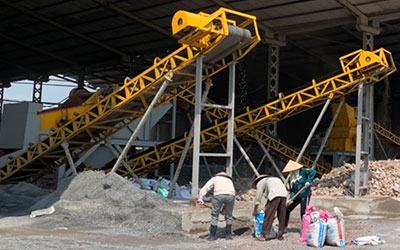
Global-scale environmental issues
Establishment of Environmentally Sound Management of Construction and Demolition Waste and Its Wise Utilization for Environmental Pollution Control and for New Recycled Construction Materials -
Cameroon


Global-scale environmental issues
Co-creation of Innovative Forest Resources Management Combining Ecological Methods and Indigenous Knowledge -
El Salvador

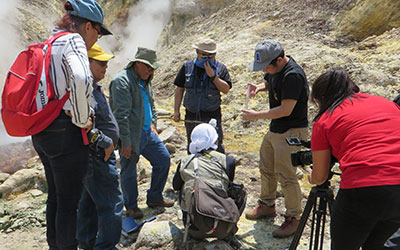
Carbon neutrality
Thermoluminescence Techniques in Geothermal Exploration and Integrated Evaluation System of Geothermal Reservoir -
Tajikistan

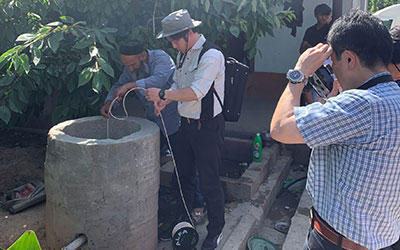
Carbon neutrality
Development of a Decarbonized Heat Energy Supply System using Ground Heat Source
-
Bolivia

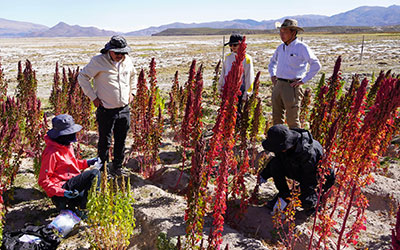
Bioresources
Strengthening of Resilience in Arid Agro-Ecosystems Vulnerable to Climate Change, Through Research on Plant Resources and Technological Applications -
Mongolia

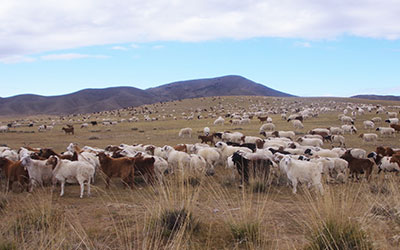
Bioresources
Restoration of Pastureland by Effective Usage of Wild Forage Plants based on Traditional Knowledge of Nomadic Mongolians -
Argentina

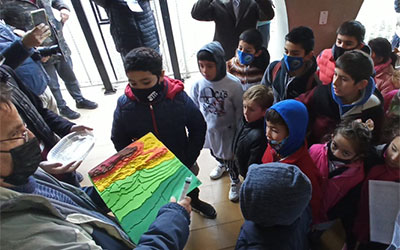
Disaster Prevention and Mitigation
Numerical Weather Prediction and Warning Communication System for Densely Populated and Vulnerable Cities -
Bhutan

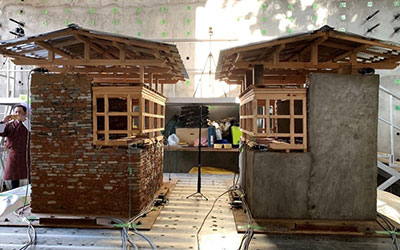
Disaster Prevention and Mitigation
Project for Evaluation and Mitigation of Seismic Risk for Composite Masonry Buildings in Bhutan
-
India

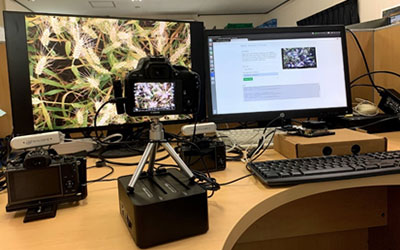
Information and Communications Technology
Data Science-based Farming Support System for Sustainable Crop Production under Climatic Change -
Germany

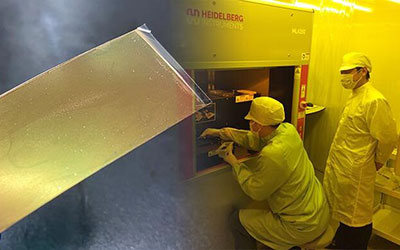
Optics and Photonics
Novel plasmonic materials and nanostructures for ultrasensitive and reproducible SERS/OW/LSPR biosensing for biomedical applications -
e-ASIA



Materials (Nanotechnology)
Development of new functional polymers from plant oils by efficient catalytic carbon-carbon bond formation, post modifications -
J-RAPID


Kahramanmaraş, Turkey, Earthquake
Business Continuity and Economic Recovery of Companies and Organized Industrial Zone in the Kahramanmaraş Earthquake
-
- ■…Research Results of SATREPS
- ■…Research Results of SICORP
- ■…Research Results of J-RAPID
Sakura Science PlanSAKURA SCIENCE Exchange Program

We invite people from Asian countries and others to Japan through Sakura Science Plan in a collaboration of industry-academia-government, to introduce and offer experience in Japanese science and technology. Beginning in 2014, and for a period of 6 years, approximately 30,000 young people visited Japan on this program.
Eligible Countries and Regions
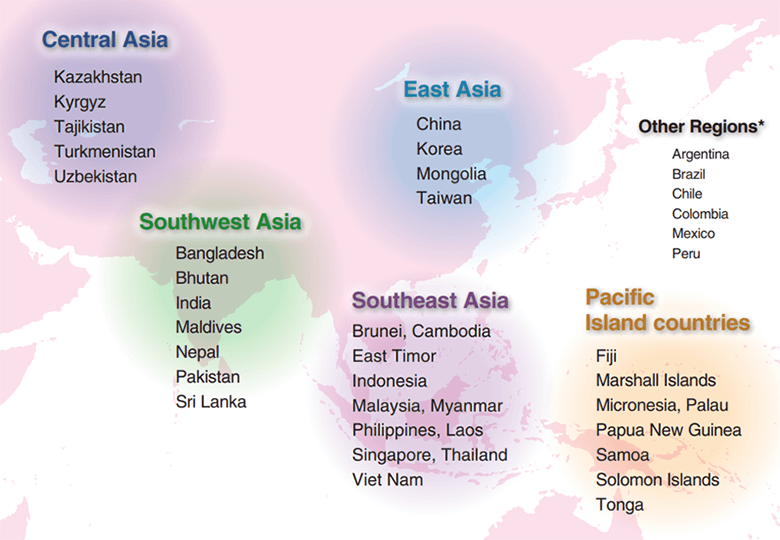
*Other regions may be added progressively.
Open Application Program
JST supports the necessary expenses for the programs selected as Open Application Program.

-
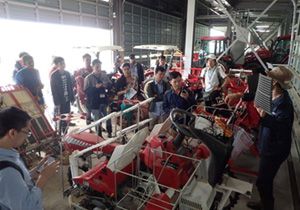
Listening to an explanation of the rice planting machine used for testing
-
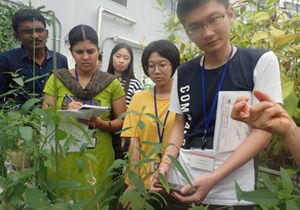
Listening to an explanation of the flood tolerance mechanism of trees in Asia in the environmentally controlled indoor growth chamber
JST Direct Invitation Program
JST plans and implements 2 programs as a host organization below.
-
SAKURA SCIENCE Supporters Program
Foreign experts in the field of science and technology or education, who are engaged in implementation of Sakura Science Plan are invited to Japan to experience Japanese cutting-edge science and technology, as well as science and technology administration.
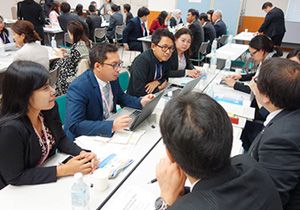
Discussion at the Ministry of Education, Culture, Sports, Science and Technology
(MEXT) (November 8, 2018) -
SAKURA SCIENCE High School Program
Excellent high school students from overseas countries and regions are invited to experience science and technology in Japan
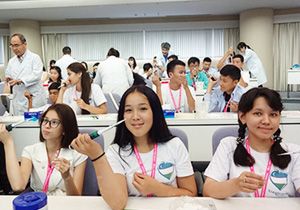
High school students from Uzbekistan learning how to use a micropipette to add and remove a very small quantity of liquid
(Kazusa DNA Research Institute, July 6, 2018)
Promoting Globalization on Strategic Basic Research Programs
Background
JST has one of activity plans, which is ‘Advancing the globalization for JST's programs to promote creation of innovation’ as a core organization for implementing Japan's science and technology policy in line with the objectives of the Science and Technology Basic Plan.
On this plan, Strategic Basic Research Programs aim to contribute creation of innovation by research achievement, and to maintain high level of research internationally. For this target, JST deems that it is necessary to enhance international activities, such as collaboration with foreign researchers and research presentations to the world in addition to activities of domestic research.
Activity
JST promotes the globalization of its Strategic Basic Research Programs.
The purpose of this promotion is (i) to accelerate the progress of its research in order to achieve the targets of the Strategic Sectors in cooperation with foreign research institutions and researchers, and (ii) to present JST's research achievements to the world and acquire the recognition of its research activities in order to win the understanding and support from the international science community for JST Strategic Basic Research Programs.
JST accepts proposals as needed basis throughout the year from researchers of JST Strategic Basic Research Programs concerning international activities which are necessary and effective for the progress of their research. JST screens them in terms of necessity, appropriateness, effectiveness, etc., and then JST allocates some budget to adopted proposals and administrative support. Such proposals are categorized into three options: (1) International Symposium, (2) International Cooperative Research, and (3) Other International Activities.
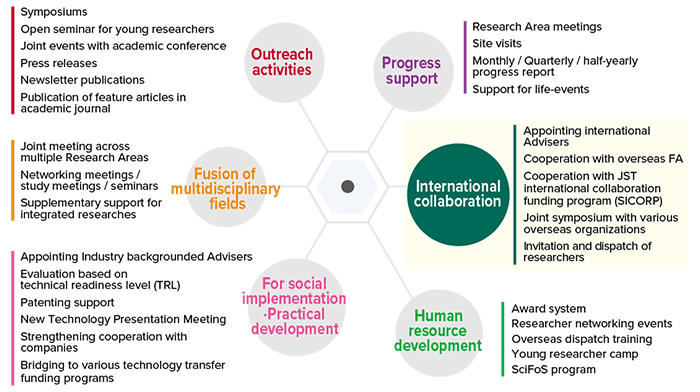
Japan-EU Joint Workshop on Advanced Quantum Technology for Future Innovation
(October 17, 2018)Strategic Basic Research Programs/CREST
On September 3-4, 2018, Japan and the EU held the joint workshop to discuss exploration of promising cooperative areas and collaborating policies for the future at the Pierre and Marie Curie Campus of Sorbonne University (Paris, France). Distinguished researchers in the quantum technology field, which is a priority investment area, gathered from Japan and EU countries. Yoshimasa Hayashi, Minister of MEXT at that time, had a meeting with Carlos Moedas, Commissioner of Research, Science and Innovation of the EU, when he visited Brussels in January this year. They reached an agreement on expanding cooperation in the quantum technology area between Japan and the EU, and accordingly this workshop was organized in response to the agreement.
Science, Technology and Innovation (STI) for implementing the SDGs
It is indeed crucial that all stakeholders from government, universities, research agencies and institutes, NGOs and private sectors, etc. take transformative steps in a holistic manner toward STI for SDGs.
As Japan Science and Technology Agency (JST) promotes not only the research and development (R&D) but also plans R&D strategies as well as enhance science communication, science education and open data, we are taking inclusive initiatives nationally and internationally for achieving the SDGs.
Promoting diversity to stimulate innovation

JST promotes diversity as one of the key pillars of management strategy to create scientific and technological innovation. In contribution to this we have established and implemented the Brilliant Female Researcher Award (The Jun Ashida Award), celebrating female scientists and the institutions that promote their activities, and the Marie Sklodowska Curie Award, celebrating young female scientists who are anticipated to achieve success on the world stage. In addition, we are implementing a childbirth, childcare, and nursing care system that supports researchers with both family commitments and their research work.

